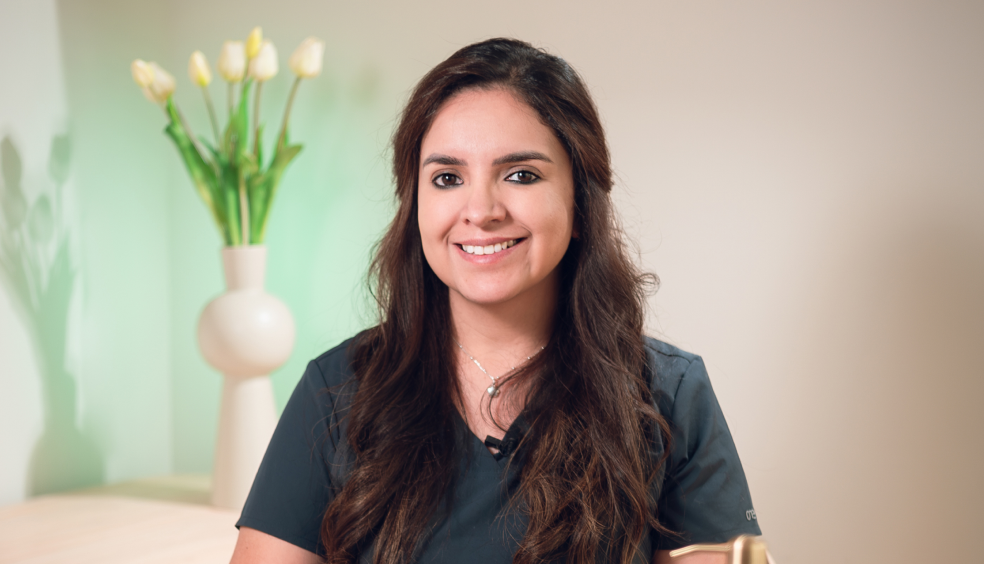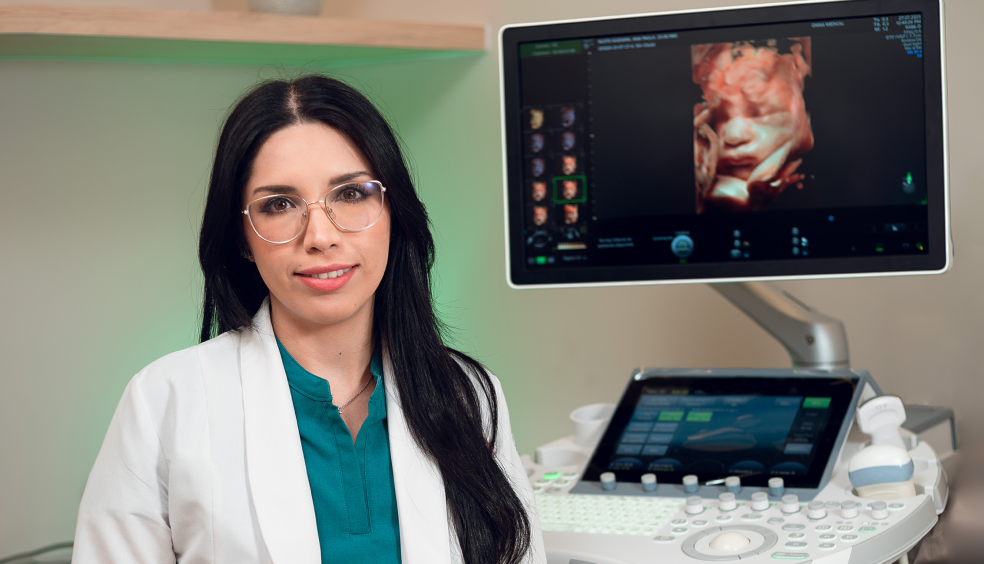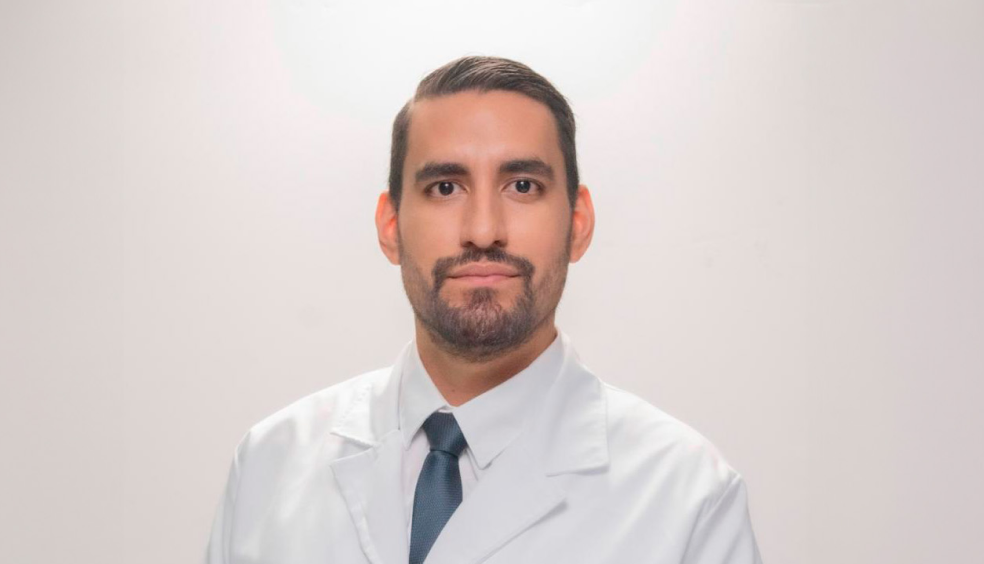Chorionic villus sampling is an examination we conduct on the placenta to ensure that the baby is growing healthy and strong.
Chorionic villus sampling is a small inspection we perform on the placenta. We take a tiny piece of tissue to analyze and ensure the baby grows healthy and strong.
Chorionic villus sampling is performed between week 10 and week 13 of your pregnancy. It’s an ideal time to obtain valuable information about your baby’s health.
Usually, we use a local anesthetic to numb the area of the abdomen where the needle will be inserted.
Like any procedure of this kind, there is minimal risk. According to some research, the risk of fetal loss is low, between 0.2% and 2%. However, at ONNA Medical, we take all necessary precautions to minimize any risk.
We primarily perform it to learn more about your little one’s health. It helps us detect early on if there is any risk of genetic or chromosomal conditions.
With this test, we can determine if there are risks of conditions such as Down syndrome or Edwards syndrome, among others. The idea is to stay one step ahead and be prepared for anything.
Basically, we insert an excellent needle through your abdomen or, in some cases, a probe through the cervix. We do all of this under the guidance of an ultrasound to ensure everything goes smoothly.
The procedure itself is pretty quick, taking only a few minutes. But you’ll have more time to prepare and for follow-up afterward.
Yes, it is an invasive method. We introduce a needle or probe to obtain the sample. But you don’t need to worry; our maternal-fetal specialists have extensive experience performing chorionic villus sampling, and the risk is virtually nonexistent.
Results are usually available 12 to 15 days after the sample is taken. Once validated, we will send them to your email and to your doctor.

Gynecologist and Obstetrician with a subspecialty in Maternal Fetal Medicine and training in advanced fetal echocardiography.
Certified by the Mexican Council of Specialists in Gynecology and Obstetrics, and the Fetal Medicine Foundation. As an expert in maternal-fetal health, I try to convey to my patients the importance of care and supervision during pregnancy.

Gynecologist and Obstetrician with a subspecialty in Maternal-Fetal Medicine, certified by the Mexican Council of Specialists in Gynecology and Obstetrics and the Fetal Medicine Foundation.
Expert in the monitoring and management of high-risk pregnancies, detection of congenital disabilities, and twin pregnancies.

Gynecologist and Obstetrician with a subspecialty in Maternal Fetal Medicine by the UNAM. Experienced in the management of high risk obstetric and gynecologic pathology.
Certified by the Fetal Medicine Foundation in Cervical Assessment, Preeclampsia Detection and Doppler Ultrasound. Afiliado a la International Society for Prenatal Diagnosis y The Society for Maternal-Fetal Medicine. Affiliated to the International Society for Prenatal Diagnosis and The Society for Maternal-Fetal Medicine.

Specialist in Medical Genetics with subspecialty in Perinatal Genetics from the National Autonomous University of Mexico.
Certified by the Mexican Council of Human Genetics, she is an active member of the American Society of Human Genetics (ASHG), the International Society of Prenatal Diagnosis (ISPD) and the Mexican Association of Human Genetics (AMGH).
It is performed between the 11th and 14th week, and with it, we can know how many weeks of pregnancy you have and if there is a risk of Down Syndrome.
It is a blood test that detects two placental hormones; it improves the detection of Down Syndrome, Preeclampsia, and growth restriction.
During the second trimester, we carefully evaluate your baby's organs.
It provides information about the baby's growth, position, and the state of the placenta and amniotic fluid.
Our equipment offers images of greater clarity and resolution, which allows you to get to know your baby on a deeper level.
Allows for the evaluation of the baby's heart development and function, identifying possible heart anomalies and ensuring appropriate monitoring during pregnancy.
It consists of extracting amniotic fluid by means of an ultrasound-guided needle. It is performed after 15 weeks for the prenatal diagnosis of genetic disorders.
It is a procedure in which a small placenta sample is obtained under ultrasound control. It is performed between 10 and 14 weeks to diagnose genetic diseases.
It is a test that evaluates the behavior of your baby's heart and helps us determine if its oxygen supply is adequate.
It allows you to rule out chromosomal alterations in your baby, such as Down syndrome, using a blood sample from the mother.
Helps to relieve pain and discomfort caused by postural changes during pregnancy, improving lumbopelvic mobility, decreasing circulatory problems and maintaining pelvic floor muscle tone.
Improves musculoskeletal structures after pregnancy, provides lymphatic drainage and treatment for soft tissues and scars, facilitating a healthy and safe recovery.
Personalized nutrition plan to enhance chances of successful pregnancy. Custom strategies for couples diagnosed with infertility. Includes comprehensive assessment, tailored recommendations, and ongoing support.
Stage-specific nutritional strategies throughout pregnancy, with progress monitoring and customized recommendations based on each patient's individual needs.
Professional guidance for successful breastfeeding. Includes nursing techniques, solutions for common challenges, and nutritional recommendations during the lactation period.

Av. Paseo de la Reforma 2654, Quadrata Tower, 14th Floor, Office 1401, Lomas Altas, Miguel Hidalgo, CP 11950, Mexico City.
.
WhatsApp: +52 55 2248 8874
Manacar Shopping Center, Av. Insurgentes Centro 1457, Basement 1, Onna Unit, Mixcoac, Benito Juárez, CP 03920, Mexico City.
WhatsApp: +52 55 7473 7747